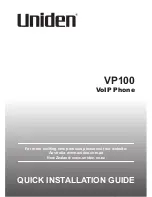
63
S e t t i n g s
Important:
Even if the use of certificates makes the risks involved in remote
connections and software installation considerably smaller, they must be used
correctly in order to benefit from increased security. The existence of a certificate
does not offer any protection by itself; the certificate manager must contain
correct, authentic, or trusted certificates for increased security to be available.
Certificates have a restricted lifetime. If “Expired certificate” or “Certificate not
valid yet” is shown, even if the certificate should be valid, check that the current
date and time in your device are correct.
Before changing any certificate settings, you must make sure that you really trust the owner
of the certificate and that the certificate really belongs to the listed owner.
Factory settings
— to reset some of the settings to their original values. You need
the lock code.
Positioning
(network service) — to change positioning settings. See ‘Positioning
Phone
Connection
Select >
Settings
>
Phone sett.
>
Connection
and from the following:
Bluetooth
— to switch Bluetooth technology on or off, and edit Bluetooth
settings. See ‘Bluetooth connection settings,’ p. 70.
USB
— to edit USB settings. See ‘USB connection,’ p. 71.
Destinations
— to define the connection methods used for reaching a particular
destination
Packet data
— to select the packet data connection settings. The packet data
settings affect all access points using a packet data connection.
• To set the device to register to the packet data network when you are in a
network that supports packet data, select
Packet data connection
>
When
available
. If you select
When needed
, the device uses a packet data
connection only if you start an application or function that needs it.
• To set the access point name to use your device as a modem with your
computer, select
Access point
.
• To enable the use of HSDPA (network service) in UMTS networks, select
High speed packet access
. When HSDPA support is activated, downloading
data such as messages, e-mail, and browser pages through the cellular
network may be faster.
















































